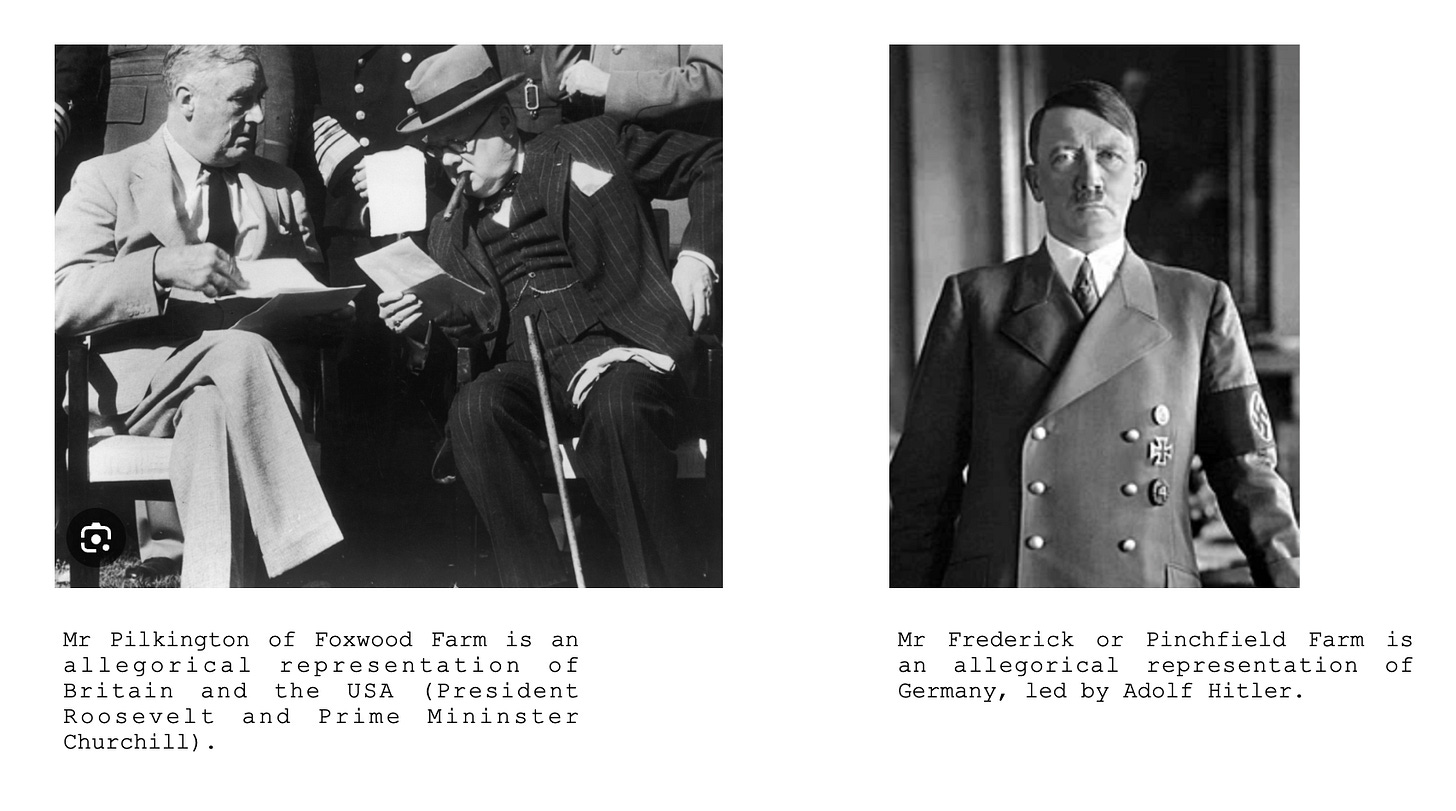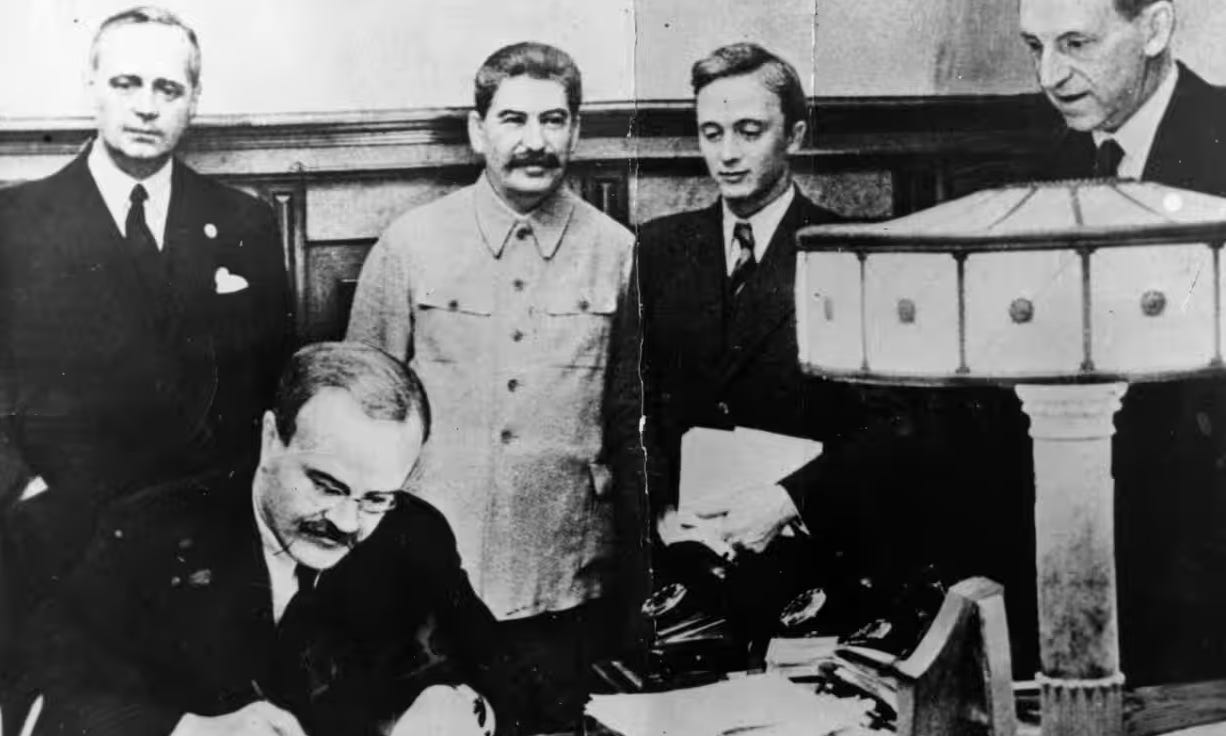“No animal shall kill any other animal without cause.”
Double crossed
Napoleon’s double dealings with his neighbours, Mr. Pilkington and Mr. Frederick, reflects Stalin’s double dealings with Germany and the Allies (Britain and the USA) at the outset of World War II.
The Allies were capitalists and Germany was fascist. Stalin sided with one side then the other, using propaganda to take the public one way then the next.
Stalin unexpectedly signed the Non-Aggression Pact (an agreement not to wage war on each other) with the German leader Adolf Hitler, just as as Napoleon unexpectedly sells the timber to Mr. Frederick.
Hitler broke his word and invaded Russia in 1941. Frederick broke his word by paying with false bank notes.
Naturally, Stalin and the Soviet public felt a terrible sense of betrayal when Hitler’s army invaded.
When Napoleon discovers the bank notes are fake:
“Napoleon called the animals together immediately and in a terrible voice pronounced the death sentence upon Frederick. When captured, he said, Frederick should be boiled alive.”
When Frederick destroys the windmill:
“A mighty cry for vengeance went up, and without waiting for further orders they charged forth in a body and made straight for the enemy.”
Extra: The (Molotov–Ribbentrop) Non-Aggression Pact
The Molotov–Ribbentrop Pact, officially the Treaty of Non-Aggression between Germany and the Union of Soviet Socialist Republic was signed on 23rd August 1939. Nazi Germany and the Soviet Union agreed not to attack each other. Their pact divided central and eastern Europe into ‘spheres of interest’. Shortly afterwards, Germany invaded western Poland while the USSR invaded eastern Poland. However, on the 22nd of June 1941, Adolf Hitler broke the pact and launched Operation Barbarossa, Germany's invasion of the Soviet Union.
Activity
By now there are ever-increasing signs that a cult of personality is being developed about Napoleon.
This means that Napoleon is deliberately presented to the other animals as a great leader who is responsible for all kinds of achievements and successes.
Can you give some examples of this presentation of Napoleon from chapters 7 or 8 ?
Extra: BBC 1941, Stalin and the Man of Steel
Extra: Public Address Systems in the USSR
“Another thing I remember is the public address system. Next to uniforms, what fills me even now with dread, is public address systems, as they evoke memories of the way they I experienced their use in a totalitarian system. It started in my birthplace of Maloryta, but realisation of its pervasive effects did not fully enter my consciousness until I was out from under its spell, and I had left the Soviet Union. It was blaring from early morning until late at night. News, propaganda, encouragement to work harder for the glorious Soviet proletarian classes, and all this interspersed with martial music. And then more exaltation of the system in all its aspects, warnings to beware of enemies and the infiltration of spies etc. It was piped in, and although you could switch it off, you dared not. Some people had them in their houses, free. I know from experience that it crept up on one. One started using the phraseology. There was no need to think. Many a time I was checked by my mother. She used to say something like, “next you will be reporting me for incorrect speaking”. There were cases when children did report their parents.”
George Orwell would explore the use of public address systems in his next and final novel, 1984, which followed Animal Farm.
What better way to test your knowledge of chapters 7 & 8 than with a kahoot?
External link: Kahoot on chapters 7 & 8



